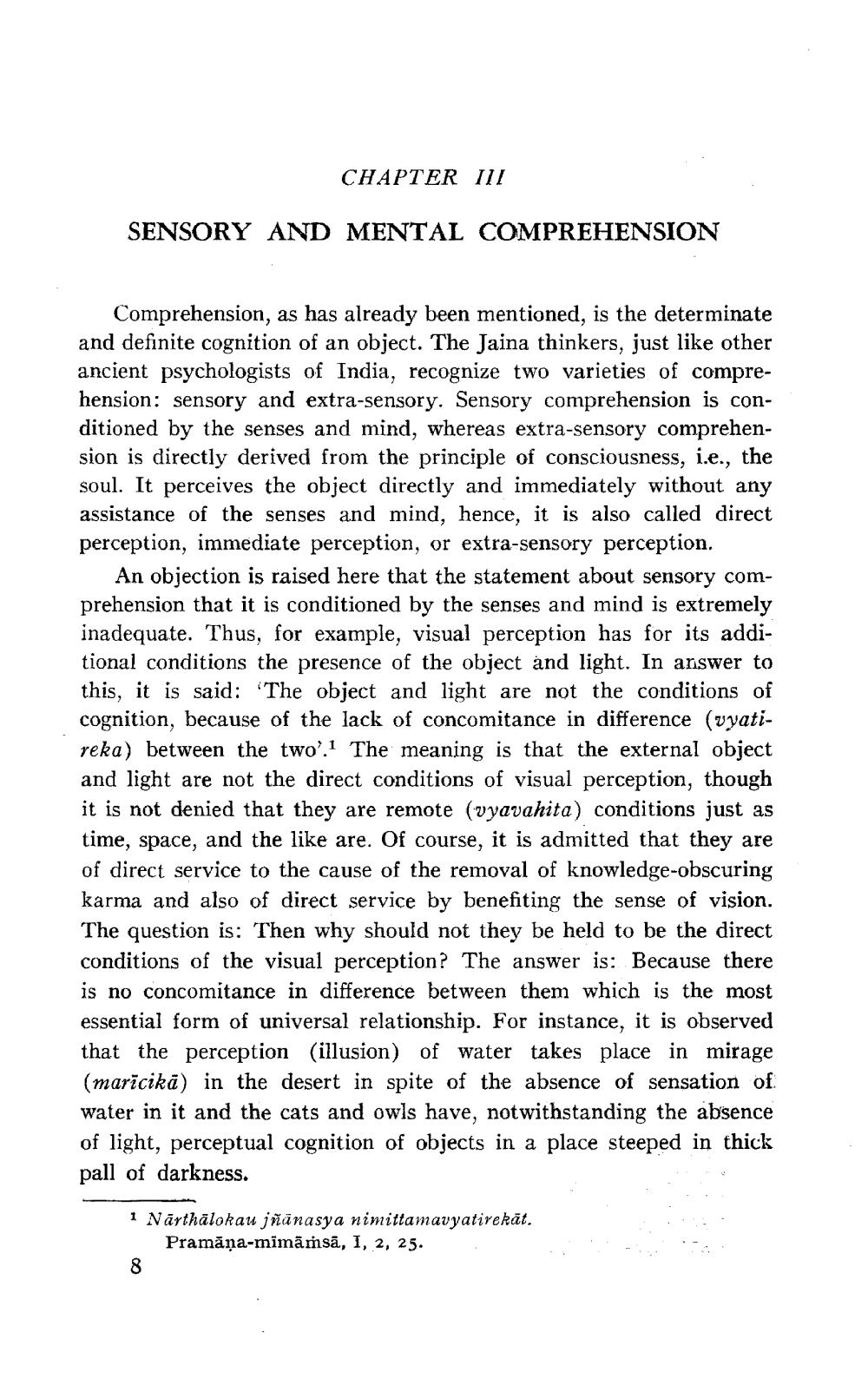________________
CHAPTER III
SENSORY AND MENTAL COMPREHENSION
Comprehension, as has already been mentioned, is the determinate and definite cognition of an object. The Jaina thinkers, just like other ancient psychologists of India, recognize two varieties of comprehension: sensory and extra-sensory. Sensory comprehension is conditioned by the senses and mind, whereas extra-sensory comprehension is directly derived from the principle of consciousness, i.e., the soul. It perceives the object directly and immediately without any assistance of the senses and mind, hence, it is also called direct perception, immediate perception, or extra-sensory perception.
objection is raised here that the statement about sensory comprehension that it is conditioned by the senses and mind is extremely inadequate. Thus, for example, visual perception has for its additional conditions the presence of the object and light. In answer to this, it is said: "The object and light are not the conditions of cognition, because of the lack of concomitance in difference (vyatireka) between the two'.1 The meaning is that the external object and light are not the direct conditions of visual perception, though it is not denied that they are remote (vyavahita) conditions just as time, space, and the like are. Of course, it is admitted that they are of direct service to the cause of the removal of knowledge-obscuring karma and also of direct service by benefiting the sense of vision. The question is: Then why should not they be held to be the direct conditions of the visual perception? The answer is: Because there is no concomitance in difference between them which is the most essential form of universal relationship. For instance, it is observed that the perception (illusion) of water takes place in mirage (maricikā) in the desert in spite of the absence of sensation of water in it and the cats and owls have, notwithstanding the absence of light, perceptual cognition of objects in a place steeped in thick pall of darkness.
1 Nārthālokau jñānasya nimittamavyatirekåt.
Pramāņa-mimāṁsā, 1, 2, 25.




